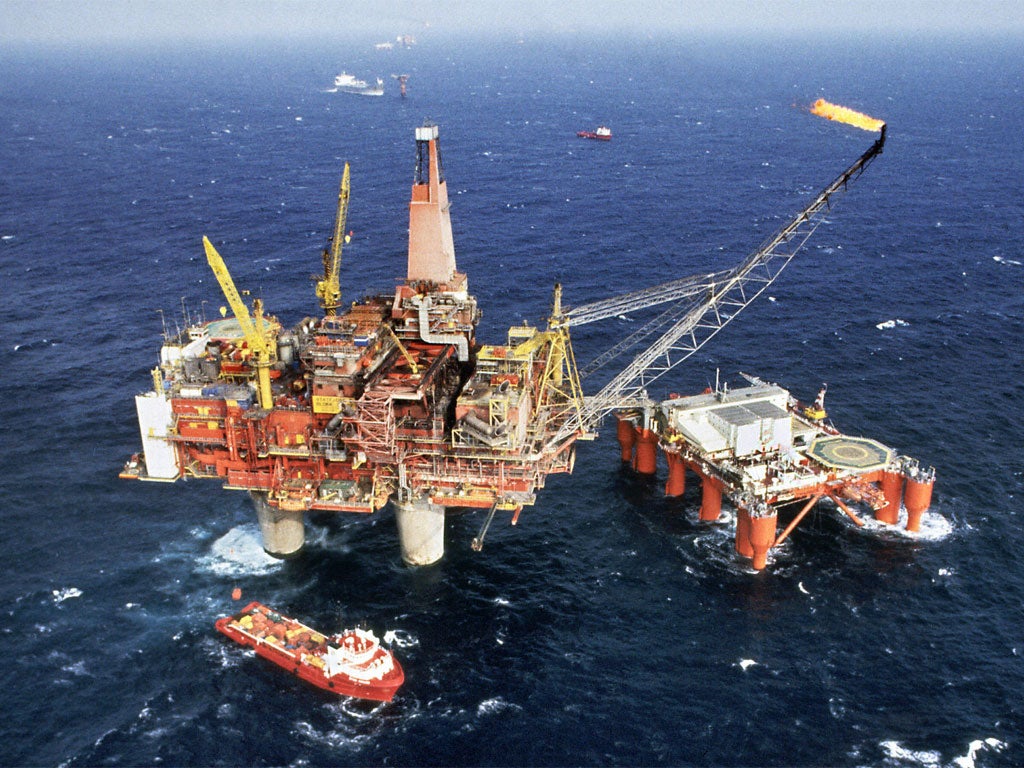Green campaigners fear for wildlife after support for North Sea explorers

Your support helps us to tell the story
From reproductive rights to climate change to Big Tech, The Independent is on the ground when the story is developing. Whether it's investigating the financials of Elon Musk's pro-Trump PAC or producing our latest documentary, 'The A Word', which shines a light on the American women fighting for reproductive rights, we know how important it is to parse out the facts from the messaging.
At such a critical moment in US history, we need reporters on the ground. Your donation allows us to keep sending journalists to speak to both sides of the story.
The Independent is trusted by Americans across the entire political spectrum. And unlike many other quality news outlets, we choose not to lock Americans out of our reporting and analysis with paywalls. We believe quality journalism should be available to everyone, paid for by those who can afford it.
Your support makes all the difference.Environmental campaigners have sounded the alarm about a British version of the catastrophic 2010 Gulf of Mexico spill after a new, deep-water oil rush in the Atlantic was signalled in the Budget.
Mr Osborne announced there would be £3bn of support for drilling new "large and deep" fields in the waters west of Shetland, sometimes known as the Atlantic Frontier. It was the last area of the North Sea basin to be developed, he said. It is known that many of the leading oil companies are considering moving into the area.
Although there have been oilfields west of Shetland operating for nearly 20 years, such as BP's Foinaven, Schiehallion and Clair fields, these are at depths of between 460ft and 1,640ft.
Now the oil majors, led by BP, plan to drill at depths nearly three times greater. BP's proposed North Uist well, 80 miles off the Shetland coast, will be sunk this summer more than 4,200ft down.
The concern of green campaigners is that any spill from the wellhead at such a depth might be immensely difficult to control, as proved to be the case with BP's own Deepwater Horizon spill in the Gulf two years ago, which was also more than 4,000ft down.
Deepwater Horizon gushed up to 62,000 barrels of oil for 88 days in an incident which sparked a social, economic and environmental calamity in the US and brought the giant multinational to the brink of collapse.
Concern is heightened by the fact that the waters around the Shetlands are among the most wildlife-rich in the British Isles.
"George Osborne has opened the floodgates to a new Klondike in the deep waters off Shetland without learning any of the lessons of the dangers this poses after the disaster in the Gulf of Mexico," said Charlie Kronick, senior energy advisor for Greenpeace. "Any oil spill in the west of Scotland would wreak untold devastation on some of the UK's most fragile habitat and the local economy."
WWF Scotland's head of policy, Dr Dan Barlow, said: "New deepwater drilling west of Shetland is just not worth the risk because we should be phasing out our use of oil, not chasing evermore difficult sources.
"The Shell spill from Gannet Alpha [in the North Sea] last year showed that even in easy waters, a long-experienced operator can make a total mess of dealing with an oil leak. Any significant oil spill in this area could present a major threat to fishing, tourism and wildlife."
He criticised the Government for handing subsidies to the "climate-wrecking" oil and gas industry, starving clean energy alternatives of much needed government investment.
Join our commenting forum
Join thought-provoking conversations, follow other Independent readers and see their replies
Comments